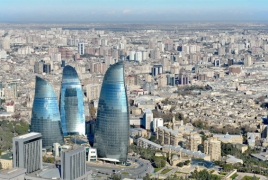
Azerbaijan stands out in the CIS (Commonwealth of Independent States) for corruption in its educational and scientific systems, reports the Geghard Foundation.
Following the United Nations' adoption of the Convention against Corruption on October 31, 2003, Azerbaijan joined the countries committed to implementing its requirements, initiating legislative and administrative reforms aimed at combating corruption. However, despite these measures, Azerbaijan continues to lead the list of the most corrupt states.
While corruption is widespread across all sectors in Azerbaijan, it is particularly blatant in the fields of education and science, where access to supposedly free services is mostly limited to educational and religious institutions. Unlike other sectors where bribery is seen as an abuse of official power, in education it also reflects broader societal behaviors.
Since the early 2000s, international organizations like Transparency International and Freedom House have consistently reported that Azerbaijan is particularly corrupt in the education sector among CIS countries.
Research from the 2010s shows that despite some changes, corruption remains deeply entrenched in Azerbaijani society, earning the label "national disgrace." While officials have acknowledged the need for reforms and announced some progress, actual issues in the education system have worsened, and new corruption scandals have surfaced, particularly in school construction projects.
Since 2012, funds for building and refurbishing educational institutions have been transferred to local authorities, reducing the transparency of tender processes and increasing construction costs. For example, a school built in Baku with U.S. Embassy support in 2007 cost six times less than a similar institution funded by the Ministry of Education’s budget in Gabala.
International monitoring has not only highlighted Azerbaijan’s place among the world’s most corrupt nations but has also drawn attention from local researchers. However, local analyses often attribute corruption to low salaries and socio-cultural factors. Despite the country’s oil and gas wealth, investments in education and science are considered insufficient, and public school programs fail to adequately prepare students for university admission.
As a result, financially capable families often resort to private tutoring or bribery to secure educational success. It has also been noted that teaching materials and resources are outdated.
Corruption has deeply penetrated Azerbaijan's scientific system, particularly within the National Academy of Sciences, where embezzlement of state funds, construction and procurement fraud, and unmonitored salary payments to absent employees are common.
While international organizations generally assess state-level corruption based on official data, Azerbaijan’s pervasive culture of bribery, especially among students, stands out. Studies show that most students are willing to pay bribes for higher grades or degrees, reflecting social norms where status outweighs skills and knowledge.
State hiring policies emphasizing diplomas over professional qualifications have further fueled this trend. Arrests and dismissals of education officials often appear superficial, aimed more at boosting public image than systemic reform.
A notable case is that of Jeyhun Bayramov, who, during his tenure as Minister of Education, faced waves of corruption complaints in Baku. Despite initiating some disclosures, corruption deepened across all levels of the education system and spread into regional scientific and educational platforms.
Today, corruption remains a systemic feature of Azerbaijan’s education and science sectors, embedded in an environment where legal neglect and bribery are normalized. Despite Baku’s high-profile actions, international rankings remain unchanged, with Azerbaijan retaining its leading position among the most corrupt countries.

